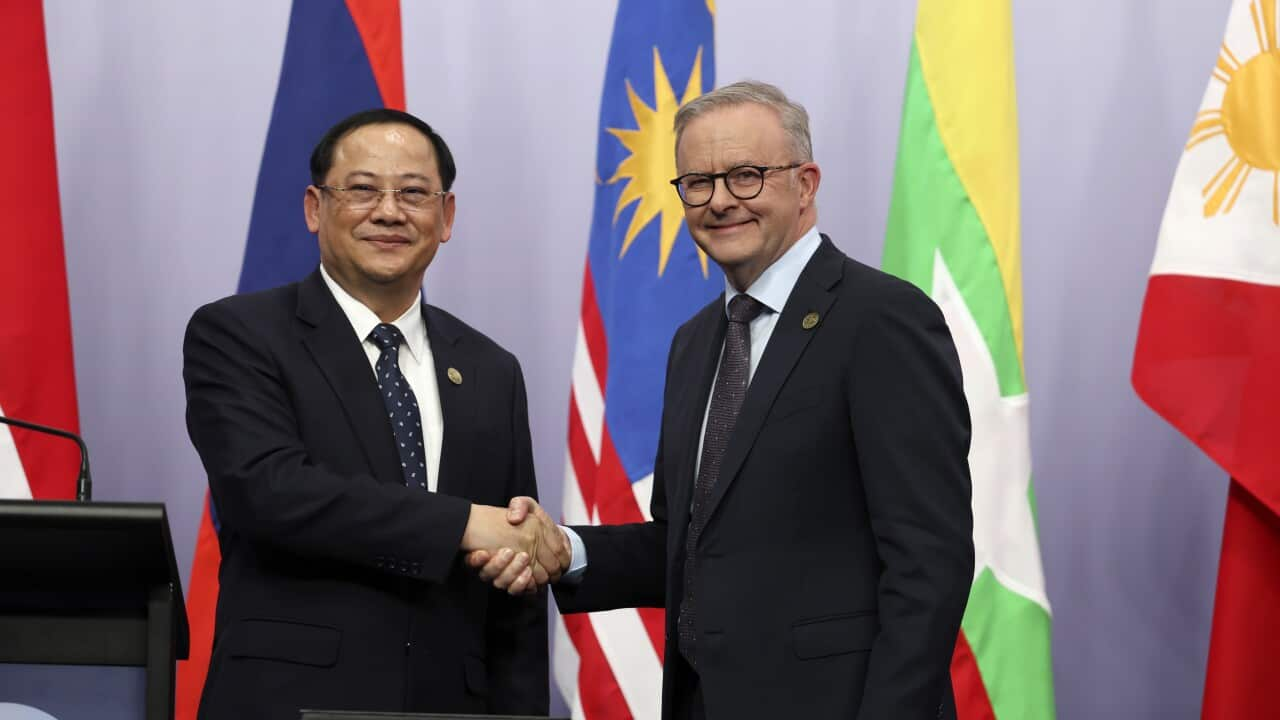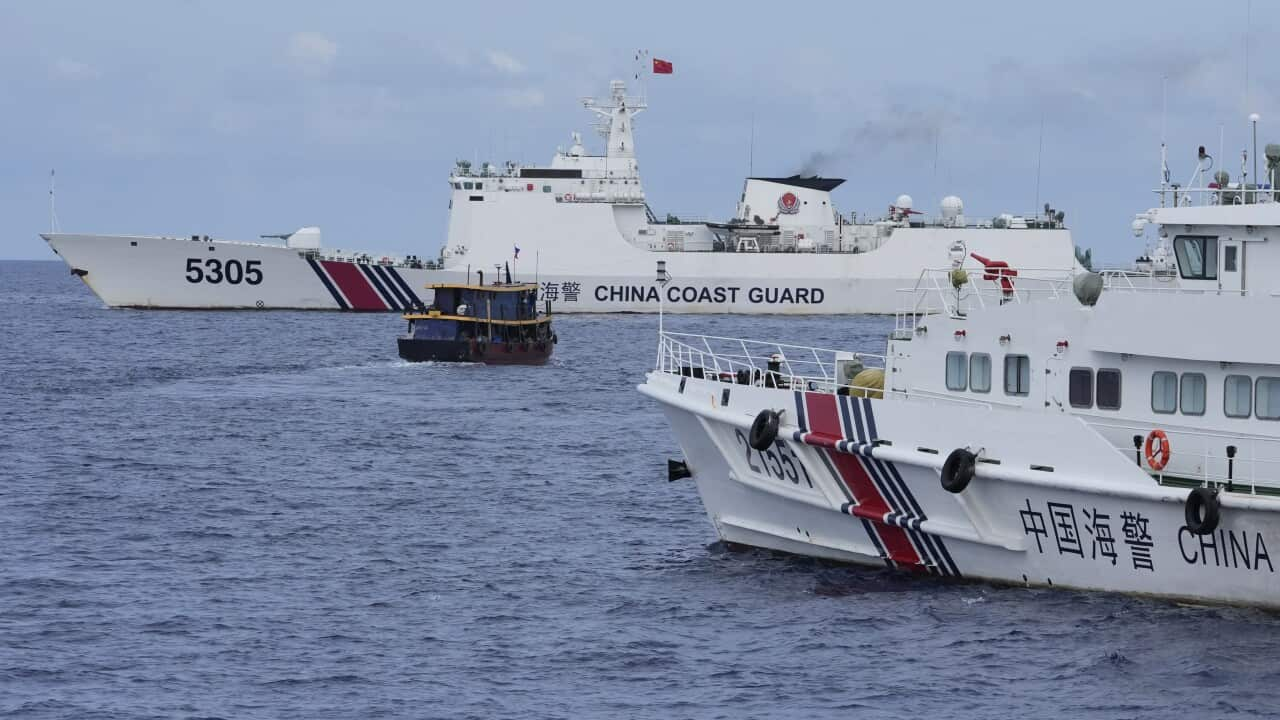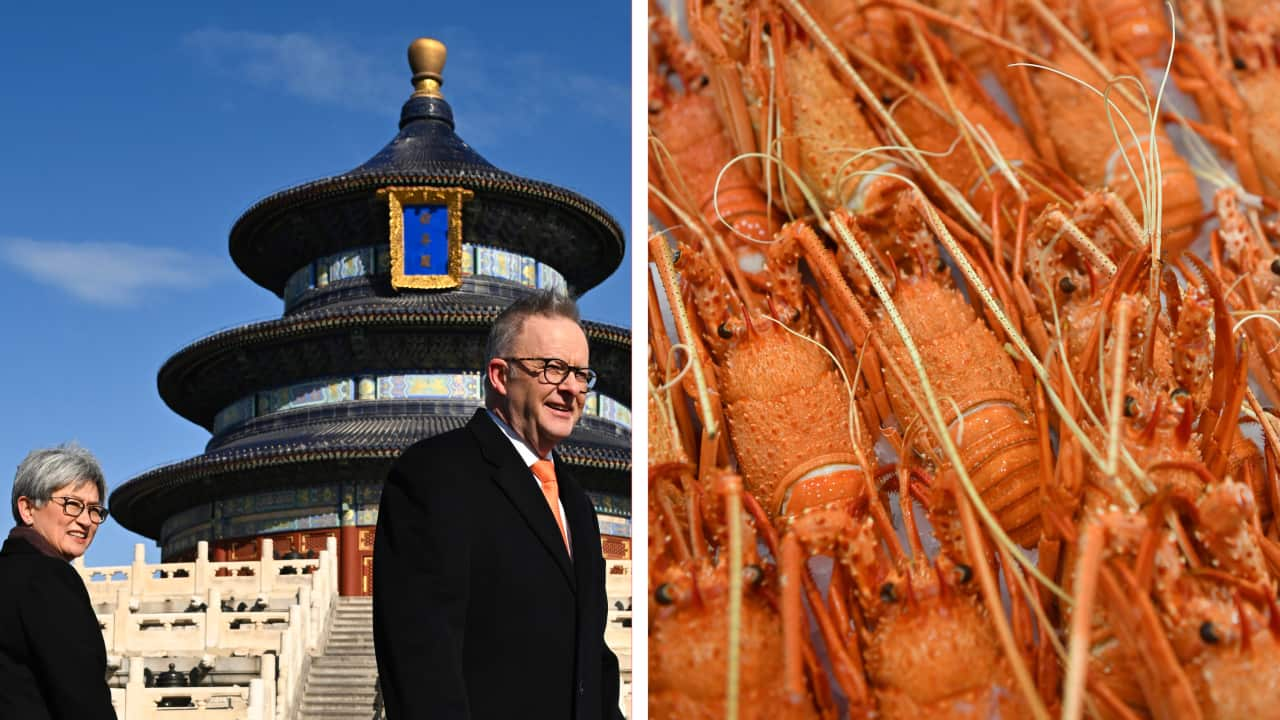Key Points
- Prime Minister Anthony Albanese will hosted nine ASEAN world leaders and hundreds of delegates in Melbourne.
- Albanese said Australia's destiny was in Southeast Asia more than anywhere else in the world and he was concerned about any destabilising behaviour in the South China Sea.
- ASEAN leaders endorsed a declaration stressing the need to maintain peace in the shipping passage.
Southeast Asian countries will stand together and with Australia against Chinese influence and aggression.
That was one of the messages coming out of the Association of Southeast Asian Nations (ASEAN) summit on its final day, hosted by Prime Minister Anthony Albanese in Melbourne.
Australia's commitment to improve visa access for the region and a $2 billion investment fund were among the summit's major announcements.
"We strive for a region where differences are managed through respectful dialogue, not the threat or use of force", the leaders said in a joint statement.
"We reiterate our strong commitment to working together to address shared challenges, uphold the rules-based regional architecture based on adherence to international law and shape our region’s collective future."
ASEAN's approach to the South China Sea
Foreign Minister Penny Wong acknowledged differing views among leaders on how best to deal with Chinese aggression in the South China Sea but said ASEAN leaders were united on stability.
"Rather than thinking about what might or might not happen, we should focus on what we want to protect, what we want to ensure, what we want to assure in order to preserve peace, stability and prosperity," she told ABC TV on Wednesday.
China and the Philippines were involved in a tense stand-off last year as Chinese vessels chased and surrounded Filipino ships in a part of the South China Sea claimed by several countries but currently under the Philippines' control.
China claims almost the entire sea on the basis of its so-called "nine-dash line".
An international tribunal ruled in 2016 that the line provides no legal basis for China’s claim, but Beijing has ignored that decision and continues to insist on the line's legitimacy.
The dispute over the territory flared in recent days, with a Philippine official claiming four coast guard crew members were injured when a Chinese vessel used water cannons and dangerous manoeuvres.
"I am very concerned and Australia is concerned about any unsafe and destabilising behaviour in the South China Sea," Albanese told reporters on Wednesday.
"It is dangerous and it creates risks of miscalculation, which can then lead to escalation."
The ASEAN leaders' joint statement recognised "the benefits of having the South China Sea as a sea of peace, stability, and prosperity."
"We encourage all countries to avoid any unilateral actions that endanger peace, security and stability in the region."
The statement also extended beyond the region, calling for an immediate and durable humanitarian ceasefire in Gaza, the release of civilian hostages and condemned attacks against civilians.
Visa changes
Following recommendations from the Invested: Southeast Asia Economic Strategy to 2040 report last year, the Australian government will improve visa access for some Southeast Asians.
The Business Visitor Visa will be extended from three to five years and a Frequent Traveller stream will be introduced, providing 10-year visas for eligible ASEAN Member States.
Energy transition
Several of ASEAN's goals focus on transitioning the region to relying more on clean energy, for which it will need Australia's help as a major exporter of fossil fuels and renewables.
Australia announced an Energy Cooperation Package to support ASEAN-led regional energy policy and planning, which leaders acknowledged the importance of.

Prime Minister Anthony Albanese with koalas at the Leaders retreat during the 2024 ASEAN-Australia Special Summit. Source: AAP / David Crosling
It also announced a further $10 million specific Climate and Clean Energy Window as part of the Southeast Asia Government-to-Government Partnerships Fund announced in 2023, attended to address the impacts of climate change.
Education initiatives
Australia announced it would fund 75 scholarships, some co-funded by Australian universities, and 55 fellowships for emerging leaders from the region.
Furthermore, the government will be establishing an ASEAN-Australia Centre in Canberra, focusing on strengthening business, education, cultural and community connections.
The package included English language training in Timor Leste as the small nation works towards joining the key regional bloc and new scholarships for emerging leaders to study in Australia.
Additional reporting by Australian Associated Press












